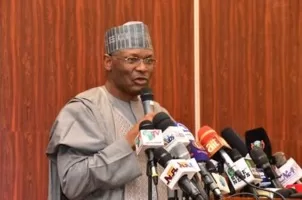Insecurity remains a pressing issue in various regions around the world, and Africa is no exception. The continent’s diverse geopolitical, social, and economic landscapes have given rise to different kinds of security challenges.

Let’s explore five African countries that continue to face insecurity and shed light on the contributing factors.
1. Nigeria
Nigeria, the most populous country in Africa, faces a big security crisis.
Boko Haram, a militant Islamist group, has been active in the northeastern region, unleashing violence and displacement.
Additionally, clashes between herders and farmers in the middle belt region have resulted in significant loss of life and property.
Kidnappings for ransom have increased across the country, impacting both citizens and foreign nationals.
At some point, some over 200 girls were abducted from a school in Borno and it drew international attention.
2. Somalia
Somalia has been plagued by instability for decades, with ongoing conflicts involving various armed groups, including Al-Shabaab, a jihadist organisation affiliated with Al-Qaeda.
The lack of a centralised government and the presence of foreign military forces have not been able to fully suppress these groups, leaving the country in a state of perpetual insecurity.
Piracy off the Somali coast also remains a global concern.
3. Democratic Republic of Congo (DRC)
The DRC has experienced severe violence, particularly in its eastern provinces, fueled by competition over valuable natural resources.
Rebel groups, ethnic tensions, and weak governance have created an unsettled environment.
The United Nations has deployed peacekeeping forces, but the situation remains the same, with civilians often caught in the crossfire.
People Also Read: Chaos As Mentally-Ill Man Stabs Nine People To Death In Adamawa
4. South Sudan
South Sudan, the world’s youngest country in Africa, has struggled to find stability since gaining independence in 2011.
Political power struggles and ethnic conflicts have led to violence and displacement of civilians.
Efforts to implement peace agreements have faced several setbacks, making it difficult for the country to achieve lasting stability.
5. Libya
Libya’s insecurity is as a result of political, tribal, and regional rivalries.
After expelling of Muammar Gaddafi in 2011, the country descended into chaos, with various armed groups fighting for control.
External forces have also become involved in the conflict, further complicating the efforts to restore stability and a functioning government.
Addressing these security challenges requires a combination of diplomatic efforts, effective governance, and international cooperation to promote peace and stability across the continent.

